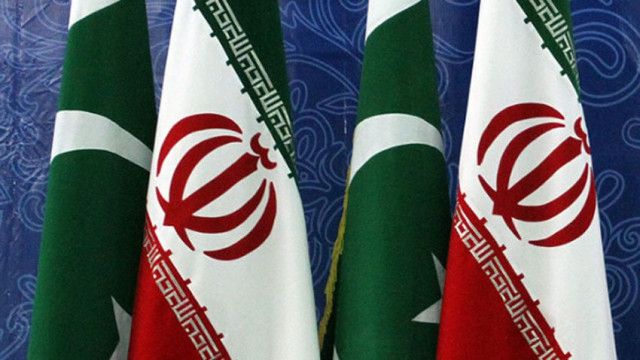US waiver for Iran gas pipeline project sought
Energy minister outlines dual strategy, promises sector reforms to tackle losses

Pakistan is engaged with the US administration to obtain a waiver of US sanctions on the Iran-Pakistan (IP) Gas Pipeline Project, aiming to fulfil contractual obligations with Iran, said the federal energy minister on Thursday.
The caretaker government opted to construct a portion of the 80-kilometer pipeline within its territory to preempt potential legal disputes with Iran in international courts. Pakistan feared facing an $80 billion penalty if it lost the case in the international court, hence the decision to proceed with its portion of the pipeline while concurrently seeking a US waiver on sanctions related to the IP gas pipeline project.
Federal Minister for Energy, Dr Musadiq Masood Malik, stated during a press conference on Thursday that Pakistan has been actively pursuing a waiver from US sanctions on the IP gas pipeline project. He explained that the government is pursuing a dual strategy: seeking a waiver from US sanctions while also progressing with the construction of gas pipeline infrastructure in compliance with the Iran-Pakistan Gas Pipeline contract.
Regarding his meeting with the visiting International Monetary Fund team, he clarified that it was merely an introductory meeting, affirming that the government has met all IMF conditions related to the power sector. He reiterated that reforming the energy sector is a government priority, not an IMF condition for future generation in the country.
Malik outlined plans to introduce energy sector reforms aimed at narrowing the gap between electricity costs and sales to mitigate annual losses of Rs1,000 billion. Progress has been made on the Weighted Average Cost of Gas (WACOG), which is expected to reduce power generation costs.
He cited Bhikki and Haveli Bahadur Shah as examples of more efficient power plants. However, the per-unit cost of electricity rose to Rs22-24 due to expensive RLNG. In contrast, the cost of electricity from local gas was Rs12, with some private companies generating electricity at Rs6 per unit.
Addressing concerns about DISCOs, the minister underscored improving their performance and efficiency by reducing electricity theft and line losses. He mentioned plans to enhance DISCOs’ operational efficiency, either through private-public partnerships or public sector interventions.
Minister Malik announced directives for public sector oil companies to establish separate entities for renewable energy, aiming to generate affordable electricity while safeguarding the environment.
In rural areas, the government plans to provide direct subsidies to farmers for fertilisers, along with high-yielding seeds and solar tube-wells to boost agricultural productivity.
Additionally, loans will be offered for the establishment of agro-industries to maximize the utilisation of fruits and vegetables.
For urban areas, the government intends to provide IT-related training to 500,000 individuals and facilitate access to soft loans from commercial banks for small and medium enterprises.
Published in The Express Tribune, March 15th, 2024.
Like Business on Facebook, follow @TribuneBiz on Twitter to stay informed and join in the conversation.



















COMMENTS
Comments are moderated and generally will be posted if they are on-topic and not abusive.
For more information, please see our Comments FAQ